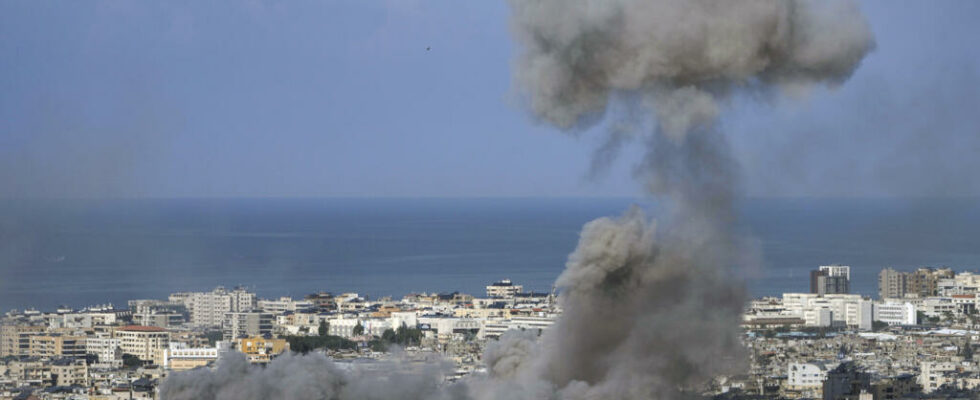According to Lebanese sources, Israeli ground forces have reached their most advanced point in Lebanon since the start of their ground incursion. The Israeli air force is also increasing its raids, particularly on Beirut. In the other direction, intense rocket fire from Hezbollah was noted. A weekend of fighting with perhaps the hope of a near ceasefire.
3 mins
The spokesperson for the Israeli army launched, this morning of November 17, a new call, in Arabic, for the evacuation of several buildings in the southern suburbs of the capital of Lebanon in anticipation of Israeli air strikes on what Israel describes as Hezbollah terrorist infrastructures. Residents of the Hadath Beirut, Burj al-Barajneh and Chiyah neighborhoods were ordered to leave their homes. This new call from the Israeli army was followed, half an hour later, by strikes south of the capital. This the day after a particularly intense day in Israeli operations in Lebanon.
The southern suburbs of Beirut were targeted Saturday November 16 by a series of air raids which completely destroyed residential buildings and businesses. The powerful explosions were heard all day in inner Beirut and its outskirts, reports our correspondent in Beirut, Paul Khalifeh.
Strikes throughout Lebanese territory
The coastal city of Tire and Nabatiyé, the two largest cities in southern Lebanon, were subjected to a deluge of fire which transformed blocks of buildings into piles of ruins. Israeli aircraft and artillery attacked around forty localities in the southern part of the country, where the Israeli army has been engaged for 72 hours in a new, deeper ground offensive. Israeli troops are encountering strong resistance from Hezbollah fighters and hand-to-hand clashes are taking place in the western sector of the border. Israeli fighter bombers did not spare eastern Lebanon, where deadly raids targeted localities in the Anti-Lebanon mountain range, bordering Syria.
THE Hezbollah for its part claimed 25 operations, including the firing of large-calibre missiles and drone attacks against targets in Israel. The Lebanese Shiite movement launched five simultaneous attacks on positions in the Haifa region, including the Stella Maris naval base, 35 kilometers from the border. Eighty shots coming from Lebanon were observed on Israeli territory, specifies our correspondent in Jerusalem, Michael Paul.
It is in this context that the American envoy returns to the region. Amos Hochstein will try to finalize a truce agreement. In Israel, it is said that progress has been made, but that the project faces two difficulties. While the Lebanese army is supposed to deploy in the south of the country, Israel demands to be able to intervene at any time in the event of a violation of the agreement. Hezbollah, for its part, refuses to withdraw from the area.
An equally tense atmosphere in Israel
On the sidelines of the November 16 demonstrations in Israel, like every Saturday evening, an incident attracted attention. Two flares were fired at Benjamin Netanyahu’s private residence in Caesarea. The Prime Minister and his wife were not present on site. Three suspects were arrested, police and the Shin Beth (internal security service) said.
This incident, condemned by the Israeli opposition, led to very strong reactions within the majority. The Minister of Justice is simply proposing to put in place judicial reform much criticized by part of the population in Israel for more than a year. For its part, the far right wants measures to be taken against the leaders of the protest movement which organizes weekly demonstrations in favor of the release of the hostages and against the government.
Also listenMiddle East: impossible peace?
